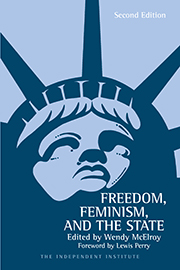In his book Seeing Like a State, James Scott commented on the role played by census data in the rise of the modern State: “If we imagine a state that has no reliable means of enumerating and locating its population, gauging its wealth, and mapping its land, resources, and settlements, we are imagining a state whose interventions in that society are necessarily crude.” Enumeration not only facilitated “a more finely tuned system of taxation and conscription” but allowed the state to intervene effectively throughout society. Although it is often viewed as a benign or annoying process, the census can be used as a powerful tool of social control and social engineering.
The U.S. government recognizes that power. It is currently engaged in an unprecedented push to count the people, citizen and noncitizen alike, living in the country. In preparation for the 2010 census, state employees even took GPS readings for every front door in America so that individuals can be located with computer accuracy.
On January 25 Census Bureau Director Robert Groves officially launched the 2010 Census when he arrived in the Alaskan fishing village of Noorvik, population 650. A symbolic dogsled run over the frozen tundra emphasized that no community was too remote or too small to escape the government’s head count. By mid-March 450 million census forms began arriving by mail in less exotic zip codes; census assistance centers were established to help people complete the ten-question form. April 1, also known as April Fool’s Day, was officially recognized as “Census Day.” In late April another mailing either thanked people for responding or reminded them to do so. Then census workers knocked on the GPSed doors of nonrespondents; they were to do so repeatedly, if necessary.
In January the San Jose Mercury reported, “The U.S. Census Bureau has created a hiring boom. Expecting to hire up to 1.5 million Americans this year. . . . The federal government expects to spend $14.7 billion to count every man, woman and child living in the country.” The jobs range from office clerks to supervisors and door-knockers.
Compliance is required by law; Section 221 of Title 13 of the U.S. Code, Chapter 7, Subchapter II spells out several types of illegal responses to the census:
- Refusal or neglect to answer questions; false answers
- Giving suggestions or information with intent to cause inaccurate enumeration of population
- Refusal, by owners, proprietors, etc., to assist census employees
- Failure to answer questions affecting companies, businesses, religious bodies, and other organizations.
Fines can range from $100 to $5,000. Nevertheless, the law is rarely enforced, and the Census Bureau relies heavily on public cooperation. To gain widespread voluntary compliance, authorities must overcome two major obstacles: apathy and a suspicion of how government will use the data. This article addresses the latter.
Opposition to the 2010 census has been less active than in 2000. (The Constitution mandates a census every ten years.) In 2000 approximately 16 percent of households received a “long form,” which contained more than 100 questions, many of which were highly personal. By some reports, in the first week after the 2000 mailing, the Census Bureau received over half a million calls, most of which complained about the length and intrusiveness of the questionnaire.
This year the long form has been eliminated. There are only ten questions. The comparative brevity does not reflect a new government respect for privacy, but merely a shift in strategy. The decennial census data are now supplemented by the American Community Survey (ACS), which is distributed yearly to select households.
Nevertheless, many people consider the 2010 form to be a violation of privacy. For example, one question asks, “Is this house, apartment or mobile home owned by you or someone in the house with a mortgage? Owned free and clear? Rented? Occupied without payment of rent?”
After that the form asks the sex, age, relationship, and race of each person living at the home and whether he or she is of Hispanic origin. For each person it must be specified whether he or she “sometimes live[s] or stay[s] somewhere else.”
Why the does the government need to know that? It also wants your phone number in case your answers are unclear.
Other than privacy, what other objections commonly arise?
One objection is constitutional. The Census Bureau draws on constitutional authority but the questions have little connection with the original intention, which was to apportion representatives and direct taxes. Critics ask why the government needs to know if they rent or own. They claim the census is not an expression of the Constitution but the creation of a bloated government abusing a limited mandate.
Certainly the history of the census is one of “mission drift.” The first census (1790) consisted of six questions: the name of the head of the family and the number of people in the household broken down into free white males 16 or older, free white males under 16, free white females, and slaves.
How did the census evolve into a vehicle for social engineering?
Expanded Data Collection
Starting in the nineteenth century statisticians urged the federal government to expand the type of data collected. Since then the census has been used more and more to facilitate government goals that far exceed apportionment. For example, both sides of the Civil War used the 1860 census to plan military strategy. When Union General William Tecumseh Sherman made his notorious “scorched earth” march through Georgia, he used census data to locate the farms he looted for provisions. During World War I the Justice Department used census data to locate males within a certain age range who had not registered for the draft; during World War II the data were used to locate Japanese-Americans and target them for internment. More recently, the IRS has compared census data to privately purchased lists to detect tax evaders.
Local governments also scrutinize census data for their own purposes. In a Wall Street Journal column in 1989, “Honesty May Not Be Your Best Census Policy,” James Bovard explained that those responsible for building-code enforcement often used the data “to check compliance with zoning regulations” and to find violations such as “illegal two-family dwellings.”
The government responds to privacy concerns by assuring the public that the data are confidential. “Wrongful disclosure” by employees carries a fine of up to $5,000 and/or a prison term of up to five years. Other federal laws reinforce confidentiality protections, including the Confidential Statistical Efficiency Act and the Privacy Act. Confidentiality is “guaranteed” for 72 years.
Unfortunately, the government has a history of sharing specific data with enforcement agencies, especially during crises. Government assurances can have a short shelf life. The original Social Security cards explicitly stated that they were not for identification purposes. Yet today the number is virtually a national ID without which you cannot so much as open a bank account. The government is constructing a huge national database with the goal of including detailed racial, age, financial, medical, educational, and relationship information on every American. It is naive to assume that bureaucrats can resist the temptation of dipping into the rich information on census forms.
Dividing up the Booty
The government predominantly uses one argument to elicit compliance, which the Census Bureau website states clearly: “Each question helps to determine how more than $400 billion will be allocated to communities across the country.” The money will be used to fund hospitals, job training centers, schools, senior centers, emergency services, and public-works projects.
In other words, tax money will be doled back out to communities based on how many residents return the form. An October Newsweek article, “Census Maps Out Strategy to Snare Elusive,” quoted a census official on the effect of promised entitlements and peer pressure on potential noncompliers: “What helps persuade the cynical to participate is stressing the count’s benefits for their children, such as planning for schools and hospitals.” And, if the “cynic” has no children or is willing to waive personal benefits to maintain privacy, he is reminded that noncompliance “steals” from his neighbors and their children. Thus exercising his right to privacy is said to deprive his community of benefits and the neighborhood kids of a good education. Compliance has been converted into a civic duty. But since the census determines how $400 billion is to be divided among communities, doesn’t compliance constitute stealing from others, depriving them of benefits and their children of a good education?
Several years ago I discussed the Canadian census with a neighbor after she had signed up to be a census taker. Like many rural women, she is proudly independent and openly suspicious of authority, especially of government “suits” and bean counters. I asked what she would do if a neighbor refused to answer her questions. “I’d report them to my boss,” she replied without hesitation. When I frowned in disapproval, she indignantly protested against people who refused to pull their weight in the community by answering “some simple questions.”
Note the political sleight of hand. My neighbor would never trespass on my property or steal vegetables from my garden. But she would turn me in to the authorities for not answering questions. Instead of the “natural harmony of interests” that comes from all people minding their own business, the census establishes a situation in which everyone is encouraged to police everyone else at the behest of the State; indeed, many are paid to do so.
The census in a welfare state, then, creates a dynamic in which the exercise of one person’s rights ostensibly damages the interests of others. It thus has become a powerful symbol of social control over civil society.
Reprinted with permission. © 2010, Foundation for Economic Education









